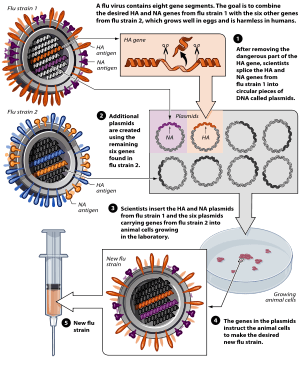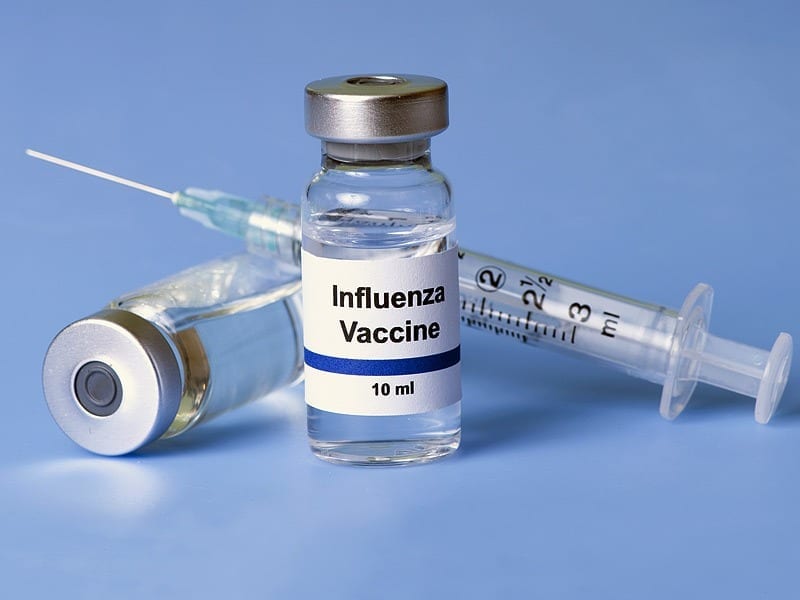
The benefits and risks of “gain-of-function” research into highly pathogenic microbes with pandemic potential must be evaluated, scientists say
A group of over 50 researchers has called on the European Commission to hold a scientific briefing on research that involves engineering microbes to make them more deadly.
In a December 18 letter to European Commission president José Manuel Barroso, the scientists—including representatives from the non-profit Foundation for Vaccine Research in Washington, D.C.—urged the commission to organize the briefing, and to formally evaluate the risks and benefits of such “gain-of-function” research.
“Gain-of-function research into highly pathogenic microbes with pandemic potential has global implications for public health,” says Ian Lipkin, an infectious disease researcher at Columbia University in New York, who is one of the signatories of the letter. “We are not seeking to shut down all gain-of-function research, but asking that stakeholders meet to establish guidelines for doing it.”
The recent controversy over gain-of-function studies began in 2011 when Ron Fouchier, a virologist at the Erasmus Medical Center in Rotterdam, the Netherlands, sought to publish a study detailing how his team had engineered H5N1 avian influenza strains that could infect ferrets in separate cages through the air. Avian flu infections can be deadly for humans, but presently circulating strains of the virus are specific to birds and rarely infect mammals.
Proponents of the work say that it provides insight into how avian flu strains could naturally evolve to become more dangerous —results that could inform flu surveillance as well as vaccine and drug development. Opponents say that the work is too risky, because it involves engineering a deadly form of flu that could escape from research facilities or, in the wrong hands, could be intentionally released to cause a pandemic.
The Latest on: Mutant Flu-Strain Research
[google_news title=”” keyword=”Mutant Flu-Strain Research” num_posts=”10″ blurb_length=”0″ show_thumb=”left”]
via Google News
The Latest on: Mutant Flu-Strain Research
- Vaccine breakthrough means no more chasing strainson April 25, 2024 at 11:10 am
Scientists at UC Riverside have devised a vaccine that targets a part of the viral genome that is common to all strains of a given virus.
- Scientists say USDA is sharing too little data too slowly on H5N1 fluon April 23, 2024 at 11:25 am
When the US Department of Agriculture announced late Sunday that it had publicly posted new data from its investigation into a bird flu outbreak in cattle, scientists eagerly searched a well-known ...
- New international collaboration aims to combat pandemic flu strainson April 23, 2024 at 8:08 am
Science X is a network of high quality websites with most complete and comprehensive daily coverage of the full sweep of science, technology, and medicine news ...
- Could a Novel RNA-Based Vaccine Strategy Stop Endless Boosters?on April 22, 2024 at 8:13 am
A novel vaccination strategy utilizing small interfering RNA molecules could protect infants from COVID-19 and flu with a single shot. The study suggests that the vaccine strategy could offer ...
- Disease X Could Cause Next Deadly Pandemic, Warns Scientistson April 21, 2024 at 4:49 am
Scientists have issued a warning that Disease X could potentially cause the next pandemic, with influenza emerging as a primary concern due to its evolutionary nature and potential for devastating ...
- Disease X: Scientists warn next pandemic could be triggered by virus of ‘deadly infectious illness'on April 20, 2024 at 10:54 pm
Experts warn of Disease X as a potential cause of the next pandemic, with influenza identified as a major threat.
- Mutated Strains of Unknown Drug-Resistant Bacteria Found Lurking on ISSon April 18, 2024 at 10:45 am
It’s not clear how the space bacteria may affect the health of astronauts on the ISS—or humans back down on Earth.
- Avian flu outbreak raises a disturbing question: Is our food system built on poop?on April 18, 2024 at 3:00 am
News that Midwestern dairy cows may have become infected with avian flu by eating poultry waste has many asking: What are American farm animals being fed? And should we be concerned?
- New mutant strain of mpox with ‘pandemic potential’ discovered as health chiefs call for ‘urgent measures’on April 17, 2024 at 8:27 am
A MUTANT strain of mpox with “new pandemic potential” has been discovered in a small town in the Democratic Republic of Congo (DRC), according to research. The new bug is a descendant ...
- Universal vaccine may be effective against any variant of any viruson April 16, 2024 at 4:54 pm
Scientists at the University of California, Riverside (UCR) has recently developed a revolutionary RNA-based strategy for a universal vaccine ...
via Bing News










